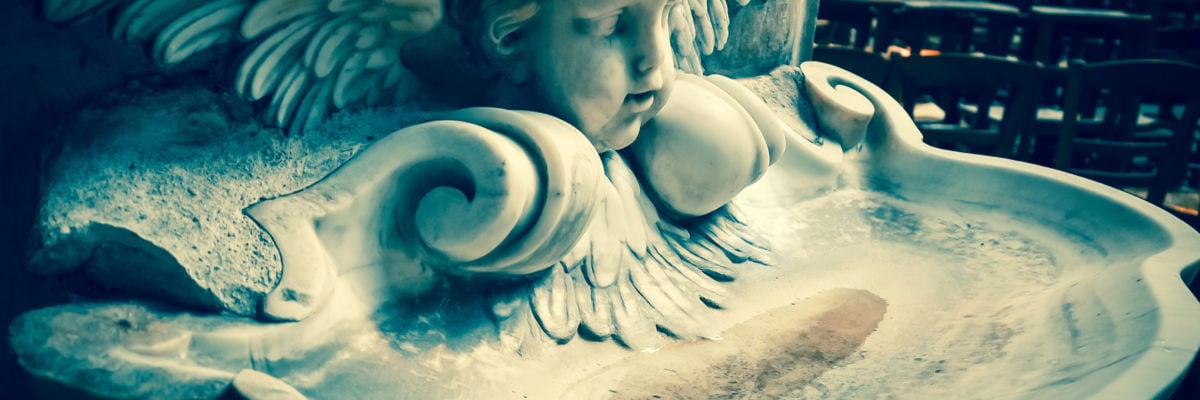
Question:
Answer:
It’s not superstitious because in using holy water we’re following the example of Jesus and his first disciples.
Remind your Catholic friend of his baptism, in which God and his Church used holy water to remove original sin and any personal sins (Catechism of the Catholic Church (CCC) 1237-43, 1262-66ff.). So we see that God uses material means as instruments of his grace.
Holy water is an example of a sacramental, “sacred signs which bear a resemblance to the sacraments. They signify effects, particularly of a spiritual nature, which are obtained through the intercession of the Church” (CCC 1667). Water is a life-giving source for humanity in and of itself, so it symbolizes how God uses it, i.e., to bring his blessing into people’s lives. And thus what makes holy water holy is its being blessed, not because it naturally has such powers.
We also see the use of other material means in the Bible. Recall that touching Jesus’ garment cured a woman of a longstanding affliction with hemorrhages (Luke 8:42-48), and handkerchiefs and aprons that St. Paul distributed resulted in the healing of the sick and the exorcism of the possessed (Acts 19:11-12).



